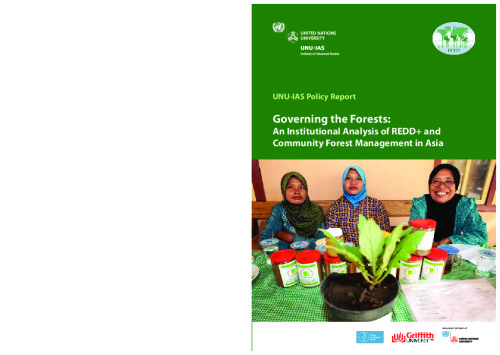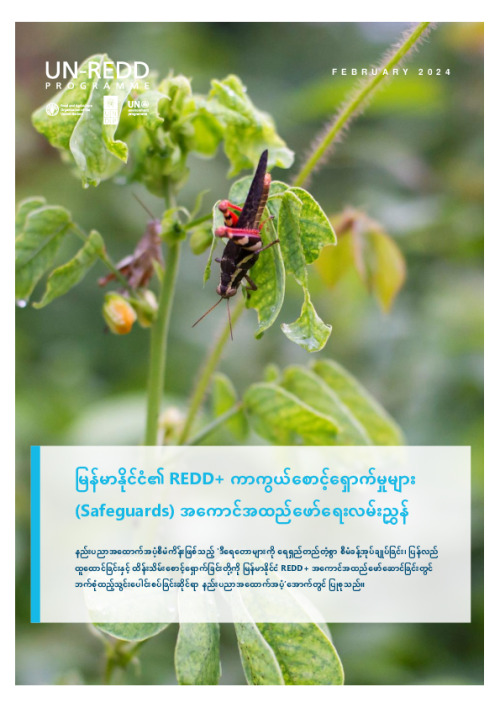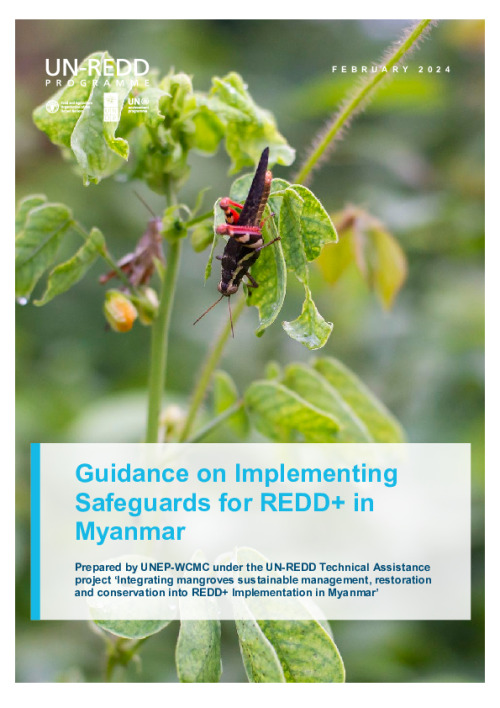Governing_the_forests_e-ver

Governing the Forests: An Institutional Analysis of REDD+ and Community Forest Management in Asia
Jose Puppim de Oliveira, Tim Cadman, Hwan Ok Ma, Tek Maraseni, Anar Koli, Yogesh D. Jadhav and Dede Prabowo
ITTO and UNU-IAS, February 2013 | ISBN: ISBN 978-92-808-4542-6
This report aims to serve as a useful reference for policymakers, professionals and practitioners as they work to promote REDD+ in ways that tackle climate change and biodiversity loss but also respect concerns and listen to the voice of local stakeholders. It presents a background on REDD+, explores ways to link REDD+ to community forestry, and provides lessons learned and recommendations.
The report explores case studies from Bangladesh, India and Indonesia, focusing on successful examples of forest-based climate change mitigation at the community level, and the role of public-private partnerships for community forestry and REDD+. Each presents a different system of forest governance, with varying degrees of community management and success. In reviewing the case studies, the authors conclude that local systems will be a key to the successful outcome of any global efforts for carbon payment schemes in developing countries. Linking community forestry and REDD+ can deliver multiple benefits from climate change mitigation and adaptation, livelihood development and strengthened sustainable forest management (SFM). Criteria for success identified in the report include: linking community forests to international regimes, including those aimed at addressing climate change, promoting biodiversity conservation and sustainable use, as well as building strong local institutions for forest management; connecting carbon management to local forest management practices and economic activities; establishing community benefit sharing; and clarifying land tenure and resource use rights. The report also emphasizes the importance of strong monitoring, reporting and verification (MRV) systems, not only as it relates to carbon accounting and reduction of greenhouse gas emissions, but also with regard to the participation of interested parties in decisions regarding the sharing of benefits arising from payments for ecosystem services, and overall forest management.
Download the resource
Size: (1.365 MB)


